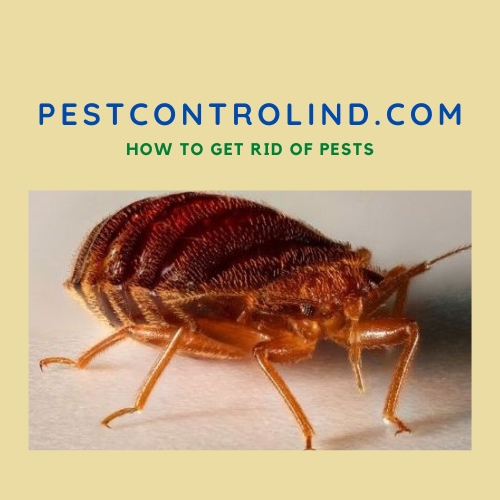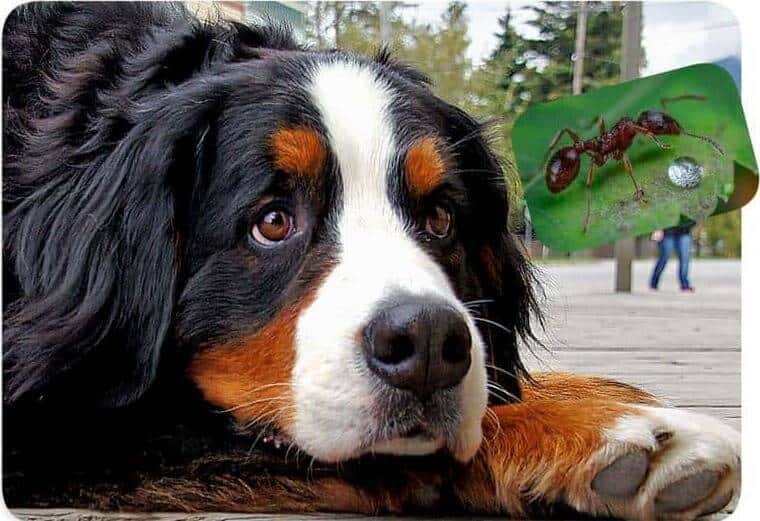Understanding a dog bitten by ants as a pet owner, you should be aware of the numerous risks that might damage your pet. Ant bites are a lesser-known hazard to dogs.
While these may seem insignificant, they can cause serious health problems for your dog if left untreated.
In this article, we will discuss the causes, symptoms, and treatment of ant bites in dogs, as well as provide tips for preventing them.
I. Causes of Dog Bitten by Ants
The most common cause of ant bites in dogs is exposure to ants. This can happen when a dog is outside and encounters ants in the environment, or when ants have invaded the dog’s living space.
Ants are attracted to food and moisture, so they may be drawn to a dog’s food bowls or water bowls.
Another cause of ant bites in dogs is poor hygiene. Dogs that are not groomed regularly or that have dirty or matted fur are more likely to be bitten by ants. This is because ants are attracted to the oils and bacteria on a dog’s skin.
Ants can also bite dogs if they feel threatened or disturbed. Some ant species, such as fire ants, have venomous stings that can cause pain and inflammation in dogs.
II. Symptoms of Dog Bitten by Ants
The symptoms of ant bites in dogs can vary depending on the type of ant and the severity of the bite. Common symptoms include redness and swelling at the bite site, itching, and pain.
Ant bites can be a serious problem for dogs, as they can cause a range of uncomfortable symptoms and even lead to infection if left untreated.
If you suspect that your dog has been bitten by ants, it’s important to be able to identify the symptoms and take appropriate action to help your pet feel better as soon as possible.
1. itching and redness
One of the most common symptoms of ant bites in dogs is itching and redness at the site of the bite. This can be accompanied by swelling and even blistering, and your dog may also experience pain and discomfort.
In some cases, the bites may become infected, leading to additional symptoms such as discharge or a foul odor.
2. Excessive licking
Another symptom to watch out for is excessive licking or biting at the affected area. This can be a sign that your dog is experiencing discomfort or itchiness and may indicate that the bites are causing inflammation.
3. Allergic reaction
In addition to these symptoms, ant bites can also cause a number of more serious problems for dogs. These can include anaphylaxis, which is a severe allergic reaction that can be life-threatening if left untreated.
Symptoms of anaphylaxis include difficulty breathing, hives, and swollen face, tongue, and throat.
4. How to Identify Ant Bites in Dogs
Identifying ant bites in dogs can be difficult, as they may not always show clear signs of being bitten. However, there are a few signs that you can look out for to help you identify ant bites. These include:
- Redness and swelling around the bite
- Itching and discomfort
- Hives or welts
- Blisters or pustules
- Diarrhea or vomiting (in severe cases)
If you suspect that your dog has been bitten by ants, it’s important to take them to the vet as soon as possible.
Your vet will be able to examine the bites and determine the best course of treatment, which may include antihistamines to help reduce inflammation and itching, antibiotics to prevent infection, and topical creams or ointments to soothe the skin.
III. Treatment of Ant Bites in Dogs
1. Treatment at Home
Treatment for ant bites in dogs will vary depending on the severity of the bite and the reaction of the dog. However, there are a few things that you can do at home to help alleviate the symptoms and prevent complications.
- Clean the bite with mild soap and water.
- Apply a cold compress to the bite to reduce swelling and pain.
- Give your dog over-the-counter antihistamines to help reduce itching and discomfort.
- Keep an eye on your dog for signs of an allergic reaction, such as difficulty breathing or swelling of the face or throat. If you notice these signs, take your dog to the vet immediately.
2. Treatment at the Vet
The vet will be able to determine the severity of the bites and provide appropriate treatment. In most cases, treatment will include cleaning the bite site and applying a topical cream to reduce inflammation and pain.
In severe cases, the vet may also prescribe antibiotics or antihistamines to prevent infection and allergic reactions.
IV. Preventing Ant Bites in Dogs
Preventing ant bites in dogs is crucial to avoid complications and ensure your dog’s comfort. Here are a few tips on how to prevent ant bites:
- Keep your yard clean. Ants are attracted to food and trash, so keep your yard free of any potential food sources and dispose of trash properly.
- Use an ant repellent. There are a variety of ant repellents available, including natural options such as citrus or mint oils.
- Keep your dog away from ant hills and nests. If you suspect that there are ants in your yard, keep your dog away from the area until you can remove the ants.
- Keep your dog inside during peak ant activity. Ants are most active during the warmer months, so it’s best to keep your dog inside during these times to prevent them from getting bitten.
- It’s also a good idea to keep your dog on a leash when exploring outdoor areas, as this will reduce their chances of accidentally ingesting ants.
- Another important step is to keep your dog well-groomed, as ants are attracted to dogs that have long hair or a lot of dander. This includes regular brushing and grooming to remove any loose hair or debris, as well as regular bathing to help keep your dog’s skin and coat clean and healthy.
Conclusion
Ant bites may seem like a minor inconvenience, but they can cause serious health problems for your dog if left untreated.
By understanding the causes, symptoms, and treatment of ant bites in dogs, as well as taking steps to prevent them, you can ensure the safety and well-being of your furry companion.
If you suspect that your dog has been bitten by ants, be sure to take them to the vet as soon as possible for proper treatment and care.

